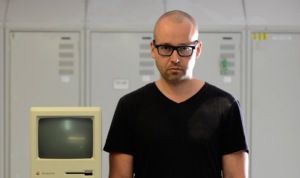Opinion
Give Yourself a Chance: Can we still trust non-tech people to make the right decisions?
Carlos Monteiro
This article is more than 7 years old.

Here come the men in tech (photo: Bob Newman on Unsplash)
We are living in momentous times and on the verge of a great transformation in our society.
If the recent Cambridge Analytica scandal implicating Facebook demonstrated anything of importance, it was not that Facebook has a lot of ‘eyes in the sky’.
No, the biggest insight was how clueless the congressmen interrogating Mark Zuckerberg were. They appeared to have no understanding of how his business is monetised.
We’ve reached a point in human development when we can no longer afford to have decision-makers who do not understand technology – whether it is representing a private organisation or a government.
Get with the program
However, there is a fascinating theory – ‘The IT Mirror’ by Mariano Gomide de Faria – which contradicts that.
He believes that skillsets widely accepted to be the norm will become obsolete 20 years from now – in the same way typewriters disappeared with the arrival of personal computers.
If he is correct, and I believe he is, when my kids turn 23 and 25 they will both be able to code – or at least have a much better notion of programming than most people today.
Mirror images
The lack of technological savviness is what causes organisations and governments to be burdensome, bureaucratic and costly.
The IT Mirror proposes a new way to think about IT via an organisational chart. It is based on the notion of allocating a programmer alongside a business-specific individual.
For that matter, a CEO would have a respective IT Mirror chief executive peer, and so on and so forth. At first, this would be introduced at the highest level: the leadership of an organisation.
Qualitative future
The whole idea behind it is to generate more nimbleness in the way decisions are made and what is best for the individual business units.
By doing so, companies are free to build autonomous groups, and it allows humongous gains in speed as well as in the ability to streamline processes.
While I’m not sure if governments are willing to take this step, I believe it is inevitable that society will take a stand and demand tech-savvy professionals backing up governments.
With that, our discussions and the way we question things will become way more qualitative as well.
About
Carlos Monteiro
Carlos (cm@biassa.com), a Brazilian resident of Odense, started his business from a blog known as denmarkbrazil.com. It later became Biassa, a business development company, which under the motto ‘Bringing forth results, not reports’ is focused on supporting Nordic businesses that want to tap into and thrive in the Brazilian market










































